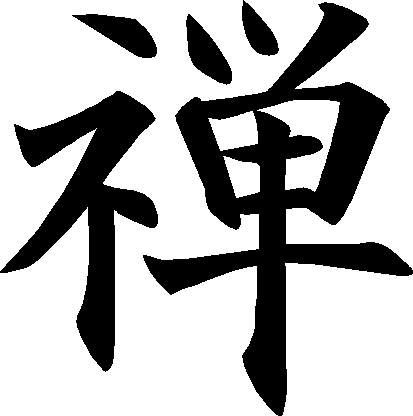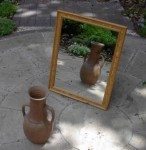Rinzai Zen teachers assign koans to students in order to arouse the mind of the student. So we apply logic in order to answer the koan, as if it were a riddle, and the teacher tells us we are getting colder, not warmer. So we switch to non-logic and start giving Zen-like answers to the… Continue reading Zen Practice: Arousing the Mind
Category: Zazen
Dark energy and Zen
I have vented to some extent my outrage over Mindfulness Based Stress Reduction programs simply because I hold the strong opinion that such programs demote Buddhism to just another self-help philosophy. Something fit for a PBS fundraising show. But outrage and holding opinions, whether strong or soft, can originate only from an independent, unchanging self. And Zen… Continue reading Dark energy and Zen
Prostrations As A Zen Practice
I don’t recall any Buddhist sutra or sutta that mentions prostrations as a Buddhist practice. I don’t know the history of how prostrations became a part of Buddhist practice. It may even come from the repulsive practice of bowing down to a king or some other authoritarian bully who commands it. But a voluntary prostration practice having nothing to do… Continue reading Prostrations As A Zen Practice
Zen Emptiness Is Fullness
“All sentient beings” includes ourselves but “no sufferer is found, no doer of the deeds is there.” No person enters Nirvana and the path has no traveler. So who suffers, who does deeds, who enters Nirvana and who travels the path? Who finds the answer to these questions? When the Buddha announced the doctrine of… Continue reading Zen Emptiness Is Fullness
Zen Practice And Enlightenment
The Ten Ox-Herding Pictures provide a framework for the How To Practice Zen program. Although they were not intended by their artist to be used as a guide, they provide a good outline for building an authentic, daily Zen practice. The pictures appeared in the twelfth century. They were based on The Sutra of the Ten… Continue reading Zen Practice And Enlightenment
Why do we practice Zen?
Modern Zen practitioners usually sit on mats and cushions indoors but we practice outdoors whenever it’s reasonable to do so. Even the Buddha eventually established monasteries where people could sit indoors. The purpose of sitting in meditation is not to see how much hardship a person can endure. We don’t sit because we believe that… Continue reading Why do we practice Zen?
Zen and Foolishness
The word “Zen” means meditation. However, Zen meditation is unlike Hindu, Christian, and Islamic meditation. It requires no belief in a creed, a guru, a savior, a prophet, or a god. Belief in an outside entity is a roadblock to Zen practice; the Buddha is nothing other than the true self of every apparent independent… Continue reading Zen and Foolishness
Zen And No Two Things
A man wrote a letter to the editor of The St. Petersburg Times in the spring of 2009, saying that he wanted oil companies to drill for oil in the Gulf of Mexico off the west coast of Florida “because we need a victory over the all-powerful environmentalists.” That was about a year before the… Continue reading Zen And No Two Things
Mirrors, Mind and Zen Practice
The mind is deluded if it is not the awakened mind of a Buddha. A Buddha mind does not divide reality into categories, nor does it like and dislike. Like a mirror, it simply accepts what is and its equanimity is not affected by the scene reflected in it. Equanimity is the seventh factor of… Continue reading Mirrors, Mind and Zen Practice
Karma and the Satanic Mind
If we find ourselves today in an unpleasant situation, it is because every thought we have ever had, every act we have ever performed, has brought us to that situation. Where we are now is the sum total of every thought we’ve entertained and everything we’ve ever done. That’s the law of cause and effect.… Continue reading Karma and the Satanic Mind









